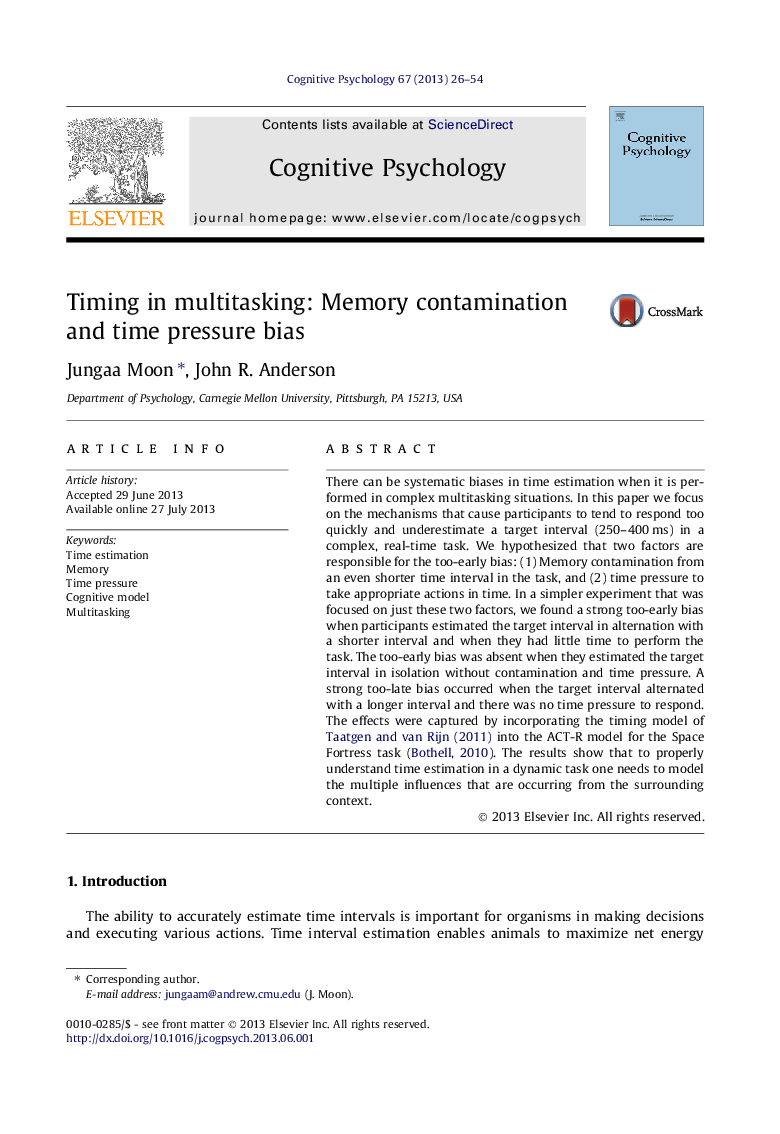| کد مقاله | کد نشریه | سال انتشار | مقاله انگلیسی | نسخه تمام متن |
|---|---|---|---|---|
| 916888 | 1473397 | 2013 | 29 صفحه PDF | دانلود رایگان |

• We investigate sources of an asymmetric bias in time interval estimation.
• Estimating a different interval contaminates target interval estimation.
• Time remaining until the end of the task affects target interval estimation.
• We develop an ACT-R model that successfully captures both effects.
There can be systematic biases in time estimation when it is performed in complex multitasking situations. In this paper we focus on the mechanisms that cause participants to tend to respond too quickly and underestimate a target interval (250–400 ms) in a complex, real-time task. We hypothesized that two factors are responsible for the too-early bias: (1) Memory contamination from an even shorter time interval in the task, and (2) time pressure to take appropriate actions in time. In a simpler experiment that was focused on just these two factors, we found a strong too-early bias when participants estimated the target interval in alternation with a shorter interval and when they had little time to perform the task. The too-early bias was absent when they estimated the target interval in isolation without contamination and time pressure. A strong too-late bias occurred when the target interval alternated with a longer interval and there was no time pressure to respond. The effects were captured by incorporating the timing model of Taatgen and van Rijn (2011) into the ACT-R model for the Space Fortress task (Bothell, 2010). The results show that to properly understand time estimation in a dynamic task one needs to model the multiple influences that are occurring from the surrounding context.
Journal: Cognitive Psychology - Volume 67, Issues 1–2, August–September 2013, Pages 26–54